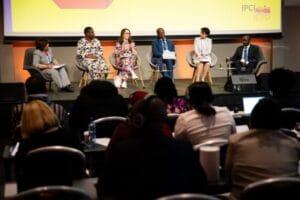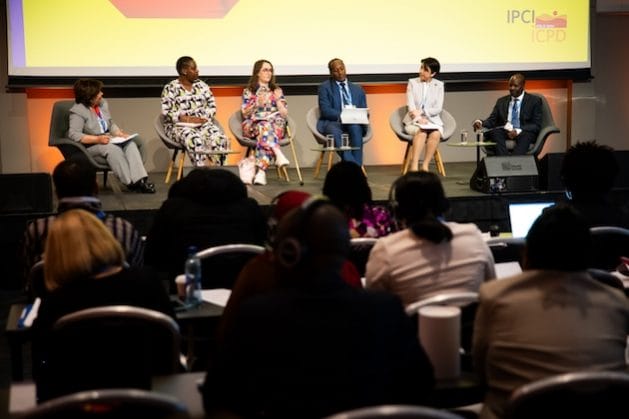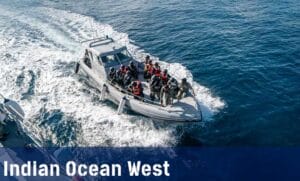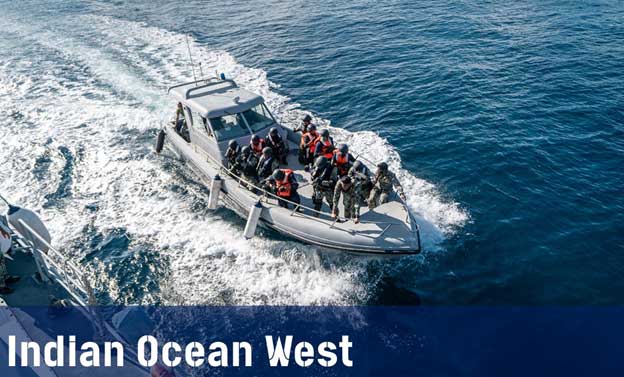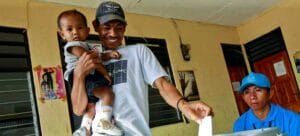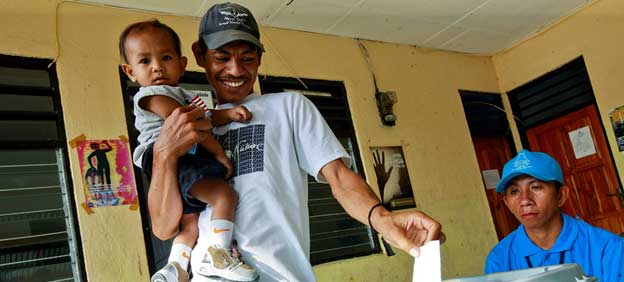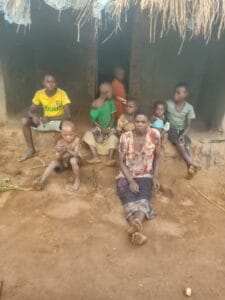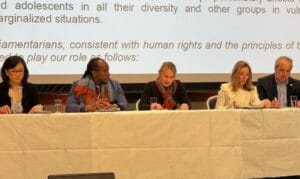
Civil Society, Development & Aid, Editors’ Choice, Featured, Gender, Gender Identity, Gender Violence, Global, Headlines, Human Rights, Humanitarian Emergencies, Population, Poverty & SDGs, Sustainable Development Goals, TerraViva United Nations, Women in Politics
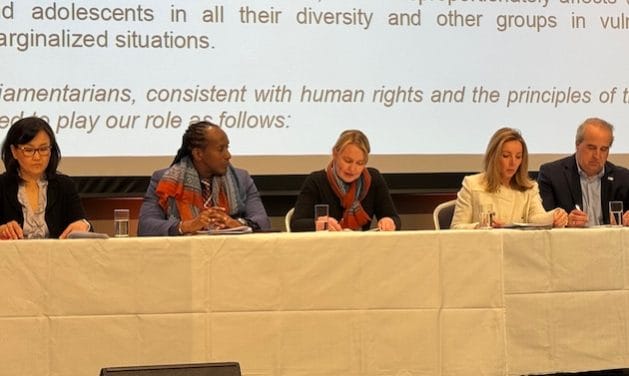
Ase Kristin Ask Bakke, MP and Chair of APPG Norway, reads the Oslo Statement of Commitment. Alando Terrelonge, MP, Jamaica, chair of the IPCI Drafting Committee, sits second from left. Credit: Naureen Hossain/IPS
– Parliamentarians from 112 countries have adopted the IPCI statement of commitment to protect and promote sexual and reproductive health rights, committing to the principle that “life or death is a political statement.”
As IPCI Oslo drew to a close on Friday, April 12, 2024, parliamentarians adopted a new Statement of Commitment that was “the collective effort of every single delegate,” said Alando Terrelonge, MP from Jamaica and chair of the drafting committee.
Remarking on the drafting process, he remarked, “We have definitely placed people’s rights and their dignity, the whole essence of human rights, at the forefront of our discussion.”
“Human rights really are at the heart of human civilization and sustainable development.”
Terrelonge, along with Ase Kristin Ask Bakke, MP and chair of APPG Norway, presented the statement before the conference in its penultimate session.
In brief, the Oslo Statement calls for parliamentarians to advocate for and promote SRHR across the life course, from birth to old age. It addresses the “rising polarization, conflicts, and fragile environments” that threaten the achievements made in the realization of IPCD’s Programme of Action by mobilizing their efforts and cooperating with relevant stakeholders.
It calls for increased accountability towards governments, the tech and healthcare sectors, and other relevant stakeholders, to respect human rights law. The statement makes a specific note to protect women, adolescents, and other vulnerable, marginalized groups who suffer disproportionately in conflicts and crises.
This statement seems pertinent in the wake of prolonged conflicts in Gaza, South Sudan, and Ukraine. In this light and in a broader context, the statement reaffirms a commitment to uphold international human rights law and humanitarian law in all contexts.
The statement reaffirms and expands on the core issues of the conference: policy and megatrends in demography, technology, and financing.
Technology’s impact on SRHR and political practices was officially codified in the statement, as it calls for governments to recognize the impact of digital technology on people’s lives, and the “immense potential” for the “full realization of the ICPD [Programme of Action].”
It also cautions that governments promote the safe and meaningful participation of women and girls in the digital space.
Financing SRHR programs has also been recognized as a priority, along with urging governments to allocate 10 percent of national development budgets towards the implementation of the Cairo program of action (POA). Furthermore, the statement advocates for following another UN-codified program, the Addis Ababa Action Agenda on Financing for Development, for its framework on long-term investments in development projects.
The participants had also agreed to increase political commitment to the continued implementation of the IPCD POA on parliamentary action for accountability and political commitment. The parliamentarians present pledged to accelerate developments and promote laws that respect international human rights obligations.
All those present enthusiastically applauded the statement’s adoption by consensus. As the conference reached its end and the statement was formally pledged, attendees expressed their support and its relevance to their states.
A delegate from Guatemala noted that while there were several pieces of legislation aimed at SRHR, they were not implemented clearly enough for civilians to know that these laws existed. She added that it was important to bridge the gap between governments and civilians in their understanding and implementation of SRHR policies.
The MP from Peru said parliamentarians needed to return to hold their governments accountable for the setbacks in the SRHR. She added that there needed to be investigations into the factors driving conservative groups to push back against the expansion of SRHR.
A MP from the Mauritiana delegation noted the progress that is achieved through pursuing gender equality: “Any society that does not give a space for women is a society that will suffer, socially and politically.”

